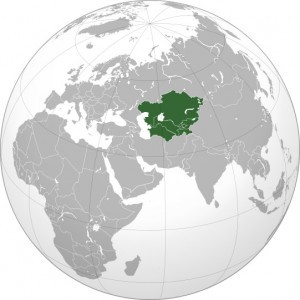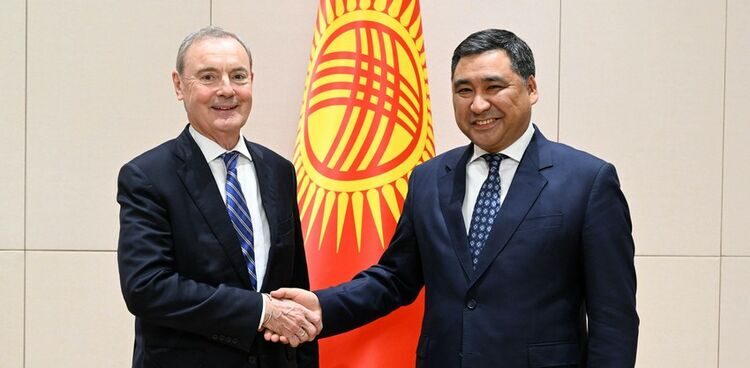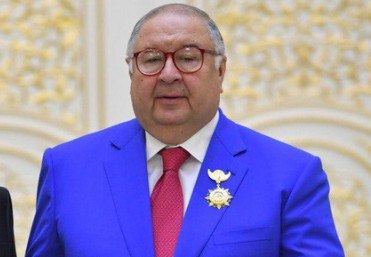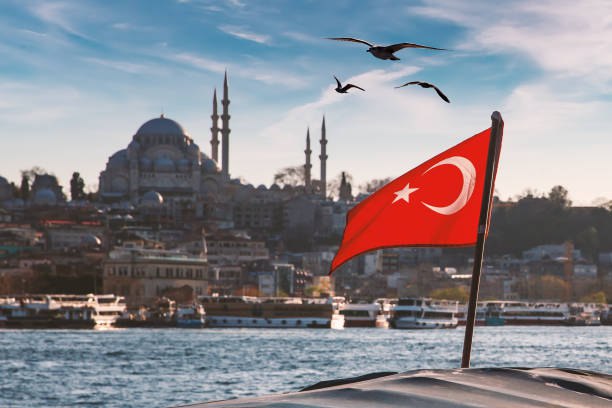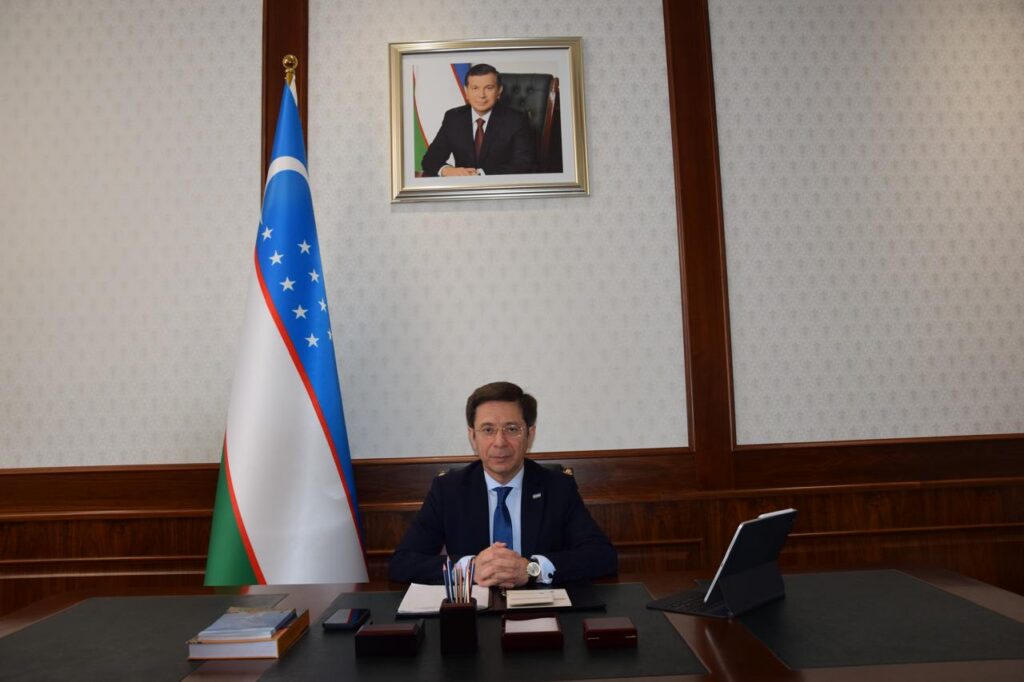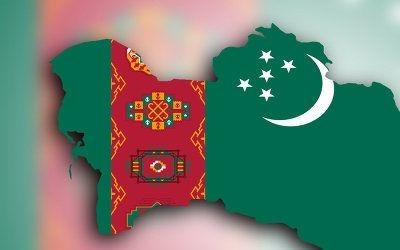BISHKEK (TCA) — The Times of Central Asia presents to its readers Stratfor’s Global Intelligence, a weekly review of the most important events that happened in the world — from Europe to Middle East to Russia to Central Asia to Afghanistan to China and the Americas.
The Week That Was
The Mosul Offensive Begins
The long-awaited Mosul offensive kicked off at the beginning of the week and has seen progress toward the city limits. The pace is likely to slow with time as the difficulty of the campaign increases. Islamic State militants are digging in inside the city to leverage its control of the city and numerous human shields to draw coalition forces into a bloody urban battle.
As expected, Islamic State fighters are also trying to create diversions to draw forces away from Mosul. On Friday, Islamic State fighters launched a surprise attack in Kirkuk, spurring Iraqi security forces and Shiite militias to deploy to the area to help defend the city. But this is exactly what the Kurdistan Regional Government (KRG) does not want to see happen. Remember, Kurdish peshmerga forces linked to KRG President Massoud Barzani’s Kurdistan Democratic Party rapidly occupied Kirkuk following the Islamic State occupation of Mosul and the chaos that followed. Barzani not only faces competition from rivals within Iraqi Kurdistan over this oil-rich territory, but is also expecting Baghdad and Iranian-backed forces to try and reclaim Kirkuk once the Islamic State threat is contained. Turkey also wants to ensure that Kirkuk falls within the sphere of influence it is building in northern Iraq. The scramble for Kirkuk will be a major flashpoint following the Mosul offensive.
Turkey’s Game of Chicken
In Syria, the battlefield is getting extremely precarious. Do not be fooled by all the recent diplomatic niceties between Russian President Vladimir Putin and Turkish President Recep Tayyip Erdogan. There is still plenty of potential for further collisions between these two, especially as Turkey extends itself further into Syria and is already directly clashing with Kurdish Peoples Protection Unit (YPG) fighters. The Syrian government has directly threatened to shoot down Turkish aircraft operating in Syria while the Russians are trying to be more subtle about their threats, but the risk is there all the same. And with the United States still on very rocky terms with the Russians, Turkey does not have much protective cover on the battlefield. Turkey is essentially walking into another game of chicken with the Russians that could draw in the United States.
Normandy Talks Revived
It was a week of heavy negotiations between the Russians and the Europeans this week. At the last minute, all parties agreed to hold a Normandy summit on Ukraine. Germany and France appear to be coordinating closely with Washington to issue the threat of additional sanctions linked to Syria in order to get Russia to cooperate in both the Syrian and Ukrainian theaters. The main outcome of the talks was a plan to draft by the end of November a road map to implement the Minsk terms. The key thing to watch for is how those negotiations end up sequencing and interpreting the Minsk conditions. For example, Ukraine has been insistent that all the security components need to happen first before political concessions can be made such as recognizing elections in the east.
The biggest sticking point is going to be the Organization for Security and Co-operation in Europe (OSCE) presence at the border. This would essentially deprive Russia the ability to transfer weapons and fighters to eastern Ukraine when the need arises, undermining Moscow’s leverage in the frozen conflict. Still, Moscow is trying to see how far it can get in the hopes of getting the Europeans to lighten up on sanctions and detract from the US position. The daily extensions of “humanitarian pauses” in Syria are all part of the Russian strategy to demonstrate that it can be as much a facilitator as a spoiler in these conflict zones.
The Nation State Collides with EU Initiatives
This past week showed the extent to which domestic politics in EU members can impact the bloc’s foreign policy. The future of the EU-Canada trade agreement remains in doubt after the parliament of Belgium’s Wallonia region voted against it. The Netherlands is demanding changes in the EU association agreement with Ukraine after Dutch voters rejected it in a referendum in April. During a EU summit from Oct. 20-21, Italy blocked an initiative to threaten Russia with sanctions because of its actions in Syria, while Germany vetoed a call to lift border controls in Europe under pressure from conservative parties at home. These are all reminders that, while the European Union has tried to weaken the nation-state, the bloc remains fundamentally a pact between countries that still have their own domestic priorities.
As frustrating as the EU bloc can be, British Prime Minister Theresa May apparently does not want to miss out on the fun. During her first EU summit in Brussels, May expressed her gratitude for the invitation and appealed to the other members to not hold meetings without her. As far as May is concerned, the United Kingdom is still a full EU member until 2019 and needs to stay in the loop on important decisions. But her EU counterparts are also not willing to entertain serious negotiations before the United Kingdrom formally triggers Article 50. As French President Francois Hollande frostily put it, “Let me say very firmly… if Theresa May wants a hard Brexit, then the negotiation will be hard.”
Duterte gets some economic goodies from China
Philippine President Rodrigo Duterte concluded his high profile visit to Beijing with some lucrative and much desired economic deals worth up to $13.5 billion. The two discussed maritime cooperation and Duterte didstick to his commitment to Beijing to deal with South China Sea friction bilaterally (as opposed to bringing in outside players like the United States. Still, substantive discussion on the Philippines regaining access to the disputed Scarborough Shoal was notably absent. Neither China nor the Philippines intend to backtrack on their sovereignty claims over the shoal and their leaders have limited political room to maneuver in making concessions. Beijing may still hold out a concession on the Scarborough Shoal as it tests just how far Manila goes in distancing itself away from the U.S. axis. At the same time, Dutert is risking political support by entering bilateral negotiations without first obtaining security concessions.
Schizophrenic Actions out of Venezuela
It appears that former National Assembly Speaker Diosdado Cabello is making progress in his campaign to lobby state governors to help him kill a recall referendum against President Nicolas Maduro. Cabello, who faces potential criminal indictment by the United States, is trying to politically insulate himself from a power transition by coercing Maduro into giving him the position of vice president and holding onto power. This week, five Venezuelan governors announced that state courts had ruled to halt the opposition’s recall referendum over claims of fraud, putting the entire referendum path in doubt.
Maduro, at the same time, is balancing between the effort to kill the referendum recall while keeping the door slightly ajar for negotiation with Washington, especially as the threat of default on foreign debt looms. Maduro recently ordered the release of two opposition political prisoners, including a U.S. citizen, to demonstrate his willingness to bargain. Maduro appears to be backing Cabello’s attempt to kill the referendum, but also is creating a contingency plan as a bigger economic storm brews. It is likely that the opposition will protest as a show of force against the referendum, although any protests would likely have to be very large and heavily disruptive to succeed in their goal, given that the government controls most of the institutions necessary to legally hold a referendum.
South Africa pulls out of ICC
Just days after Burundi became the first country to withdraw from the International Criminal Court (ICC), South Africa has opted to do the same. During an Oct. 21 press conference, South African officials stated that the country’s status as a signatory to the Rome Statute (the treaty which established the ICC) clashes with its commitment to promote peace and stability in Africa, as well as its obligation as an African Union member to respect the immunity of African heads of state. In a broader sense, the ICC is widely perceived to be “anti-African” by African leaders and populations given its indictment record. Consequently, the decision could embolden other governments, such as Kenya, Uganda and Rwanda to follow suit in light of South Africa’s influence across the continent.
Full Articles
The Human Cost of Retaking Mosul
Iraqi and Kurdish forces will very likely prevail in their battle to retake Mosul from the Islamic State, but their victory will come at a high political and humanitarian cost. In ousting the militant group, the operation in Mosul could raise Iraq’s civilian casualty rate — the third-highest in the world behind those of Syria and Yemen — because of the large number of civilians who remain in the city. At the same time, the civilian presence will slow the advance of the coalition fighting to retake Mosul, which hopes to minimize collateral damage. Though many of Mosul’s roughly 750,000 residents will remain trapped in the city, where the Islamic State will use the civilian presence as a shield to discourage airstrikes, hundreds of thousands of others will seek refuge elsewhere. But in a region already overwhelmed with displaced people from an array of conflicts, refuge will be hard to find.
Thailand: The Threat of a Throne Left Empty
Thailand’s royal succession is not going according to the junta’s plan. When revered King Bhumibol Adulyadej died Oct. 13 after 70 years on the throne, he left behind a power vacuum that could shake the country to its core. Almost immediately after the king’s death became public, the leader of the Thai junta, Gen. Prayuth Chan-ocha, announced that Crown Prince Maha Vajiralongkorn, whom the late king named as his heir in 1972, would take the throne. Despite the crown prince’s unpopularity and scandalous reputation, his appointment came as a relief, ostensibly settling the contentious issue of royal succession after years of uncertainty helped to fuel the country’s cyclical political unrest. But a few hours later, Prayuth stunned observers by revealing that the crown prince had allegedly requested time to mourn before taking the throne. In the meantime, the chief of Thailand’s Privy Council, 96-year-old retired Gen. Prem Tinsulanonda, will serve as regent pro tempore — perhaps for as long as a year.
Though it is not uncommon for a coronation ceremony to be delayed or for a regent to carry out royal duties in the absence of the Thai king, the crown prince’s dubious decision to defer accession is unprecedented. The delay has renewed long-held fears of a contested royal succession, which could prove deeply destabilizing for Thailand. The most pressing question — who will assume the throne — will probably be resolved in the coming months, as Prayuth suggested Oct. 18. But the more important details of succession — what degree of power the next monarch will wield, and to the benefit or detriment of which factions in Thai society — will take much longer to crystallize. The interregnum will shed light on the junta’s ability to fill the void as Thailand enters a phase of immense political uncertainty and transition.
A Blight on the Future of Russian Agriculture?
Russia has had a tough couple of years. Between low oil prices, continued sanctions and long-standing structural problems in the Russian economy — to say nothing of the country’s involvement in Syria and Ukraine — Moscow’s budget is stretched thin. Combined with demographic decline and brain drain, Russia’s budgetary constraints have hampered development across a variety of sectors in its economy. Through it all, though, the country’s agricultural sector has proved remarkably hardy, having recovered from a low point after the fall of the Soviet Union. Production levels of numerous crops have grown over the past decade, and the government declared the agricultural industry exempt from budget cuts this year. But this trend belies the formidable hurdles that Russian agriculture will have to overcome.
Europe’s Central Bank Is in a Bind Over Bonds
The European Central Bank (ECB) is in a bind. Since increasing its quantitative easing program in April, the institution has had to purchase 80 billion euros’ worth of bonds each month to meet its self-imposed quota. But the pool of eligible bonds is shrinking and could run out before the end of the year. Meanwhile, the quantitative easing program is nearing its expiration date, set for March 2017. Soon, the ECB — under the watchful eyes of German politicians whose electorate is growing ever warier of the central bank’s policies — will have to decide whether to extend the program. Despite the various factors complicating its decision, the ECB will probably opt to prolong its bond-buying regimen beyond March while changing its rules to increase the number of bonds eligible for purchase.
The Week Ahead
Venezuela Facing Default
Venezuela faces a big test next week on whether it can avoid a path to de facto default on debt. On Oct. 20, an unidentified petitioner asked for the Venezuelan Supreme Court to rule on whether dollar-denominated bond payments owed by state energy company Petroleos de Venezuela (PDVSA) may be paid in bolivars. PDVSA’s next bond payments totaling $1.6 billion are due Oct. 28. The move raised significant concerns among bondholders, given that the move implies PDVSA lacks the dollars necessary to meet debt payments due in the remaining weeks of 2016 andin 2017.
If PDVSA attempts to pay dollar-denominated debt in bolivars, it could spark lawsuits, which could lead to a de facto debt default. Such lawsuits could realistically lead to a lengthy legal battle, which would affect the company’s ability to obtain credit and even do business abroad. Because PDVSA provides around 95 percent of the Venezuela’s foreign currency revenue, disruptions to that cash flow have serious implications for social stability in the country. Default would most likely lead to reduced oil production, which would result in steadily declining imports of food and other staple products for Venezuela’s citizens.
Reining in Manila
U.S. Assistant Secretary of State Daniel Russel will travel to the Philippines Oct. 22-23 as part of his weeklong trip in Southeast Asia. Duterte’s anti-U.S. rhetoric — along with Manila’s warming toward China — has raised obvious concerns about the future of the alliance. Even as his conflicting statements on U.S. ties have been repeatedly downplayed and clarified by his own administration, Duterte is determined to broaden out and rebalance Philippine foreign policy. Now that Duterte has shown he can extract economic concessions from China, he will head to Japan Oct. 25-27, where he will be looking to see what Tokyo can offer in terms of economic deals and maritime security cooperation. Manila may be more comfortable drawing closer to Japan on security issues for now while using tension with the United States to bargain with China, but this is a very complex balancing act that he is attempting.
China’s Communist Party Holds Final Plenum Ahead of Party Congress
From Oct. 24-27, China’s Communist Party will hold the 6th Plenary Session of the 18th Central Committee. This is the last major party meeting before next year’s 19th Party Congress, at which five of the seven current members of the Politburo Standing Committee, China’s highest governing body, are slated to retire and be replaced. Like most official party meetings, the 6th Plenum will be a stiff and highly formal affair, with little beyond generic pronouncements on the importance of party loyalty and unity like to emerge. That said, given the proximity of next year’s leadership transition and mounting speculation that President Xi Jinping may keep key allies (such as Wang Qishan, who heads the anti-corruption drive but is set to retire, at least by current Party conventions) in power beyond 2017, we will watch closely for any major personnel changes, new corruption investigations or signs of intra-Party opposition on the Plenum’s margins.
A Civil-Military Test in Pakistan
In the week ahead, the civilian-military balance in Pakistan may come under strain. As Imran Khan, leader of the opposition Pakistan Tehreek-e-Insaaf (PTI) party, gears up for a major protest in Islamabad on Nov. 2 to highlight Pakistani Prime Minister Nawaz Sharif’s complicity in the Panama Papers scandal, an antiterrorism court in Islamabad has issued a warrant for Khan’s arrest. The warrant — which demands he be taken into custody by Nov. 17 — is in response to Khan’s alleged complicity in illegal protest activities against a state-run PTV studio in August 2014. If Khan’s arrest can galvanize his party followers and create localized chaos in the capital, it is possible that we see a repeat of the August 2014 protests (also led by Khan), in which the military—while avoiding an outright government takeover—seized the opportunity to wrest control of foreign policy from the prime minister.
EU Searches for Compromise to Save Deal with Canada
The European Union and Canada are supposed to hold a summit to celebrate the signing of their free trade agreement Oct. 27. However, the bloc’s failure to ratify the deal because of objections from the parliament of Wallonia have put the summit in doubt. Canada’s Prime Minister Justin Trudeau said he would not visit Europe unless there is a deal. In the coming days, EU members will continue pressuring Wallonia to change its position on the agreement. Even if Wallonia fails to ratify the deal, parts of it could still enter force on a provisional basis. However, it would be a political embarrassment for the European Union and cast doubts about the bloc’s ability to sign free trade agreements.
A New Government in Spain
Next week will be decisive for the political future of Spain, as King Felipe VI will hold a final round of consultations with political parties on Oct. 24 and 25 to form a government. Should the Socialist Party decide to abstain during a vote of investiture in parliament, acting Prime Minister Mariano Rajoy would be reappointed by the end of the week. If Rajoy is reappointed, his government would be stable because the Spanish constitution makes it hard for parliaments to oust a prime minister. But it would also be weak, because it would not have enough seats in parliament to pass legislation without support from the opposition. If next week’s attempts to form a government fail, Spain will have to hold the third general election in a year in December
Russia Finally Gets a Budget
The Russian State Duma will vote on the final budget draft for 2016 and the projected budget drafts for 2017-2019 on Oct. 28. For the remainder of the year, the Kremlin has come up with a series of solutions to solve its $48 billion budget gap before the end of the year. Russia will raise more than $17 billion off of privatizing Bashneft to Rosneft, and Rosneft cannibalizing its own privatized shares. The giant oil firm has fought the Kremlin for years against privatizing, and with time fleeting for the budget, its chief Igor Sechin has forced Putin to allow the oil firm to buy its own shares, solving a piece of the budgetary shortfall. Rosneft raised the cash off of future oil sales. The Kremlin is plugging the rest of the $31 billion by draining nearly all of its Reserve Fund ($32 billion). The remainder of the Reserve Fund and most of the Wealth Fund ($74 billion) have been approved for use in the 2017 budget, and the Kremlin plans to borrow heavily on international markets this next year — something Putin has been wary of his entire presidency. So the government has a plan to muddle along through the next year, however, is left with little cushion and dependent on international lending in the years to come.
Turkey Tries Again to Push the Gulen Extradition Case
Turkish Justice Minister Bekir Bozdag will meet with U.S. Attorney General Loretta Lynch from Oct. 26-27 in Washington to discuss Turkey’s extradition request for opposition leader Fethullah Gulen. Turkey has tried to frame the Gulen extradition case as the make or break in the US-Turkish relationship, but the issue is more of a cause for strain than a cause for breach. The key thing Turkey is focusing on for this meeting is to try and get Turkey to abide by a bilateral judicial agreement to temporarily detain the suspect. The United States says it needs to see more evidence first. Turkey has been compiling digital evidence to build its case, but that does not guarantee that body of evidence will pass the United States’ judicial muster. In any case, the United States will continue to engage seriously with the Turkish government on the topic to keep the bilateral relationship in check. With Turkey facing the threat of collision with Russian forces in Syria and pushback from Baghdad and Tehran in Iraq, the Turkish government cannot afford a major breach in its relationship with Washington.
A Fresh Round of Negotiations in Colombia
Colombia’s National Liberation Army (ELN) is scheduled to begin peace negotiations with the Colombian government in Quito on Oct. 27. The discussions, which took more than two years to start, are intended to reach a lasting peace deal between the ELN and the government. The group is conducting negotiations that are separate from those held between the Revolutionary Armed Forces of Colombia and the government.
